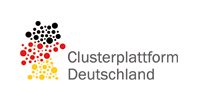Free and Hanseatic City of Hamburg
The Senate's innovation policy is based on the Hamburg Innovation Alliance (InnovationsAllianz Hamburg), which is run jointly by Hamburg's government, industry and science. The aim of this initiative is to continuously improve the framework conditions for innovation and to establish Hamburg and the metropolitan region among the top European innovation regions. The Hamburg clusters "Life Sciences", "Logistics", "Aviation, Media & IT", "Renewable Energies", "Creative Industries", "Finance", "Maritime Economy" and "Food Industry", which operate in line with a Smart Specialization Strategy, form an important basis for this.
The "Co-Learning Space for Hamburg Clusters" (CLS) was founded in 2016 to promote the work of the clusters and learn from best practices. The clusters are increasingly working together on their own initiative on both specialist topics (such as hydrogen) and administrative topics (such as skilled workers). This has led to the renaming of the CLS to "Cross-Cluster-Space Hamburg", which now identifies much more specific topics and trends and prepares them for cooperation. At the end of 2023, a call for funding for cluster bridge projects was published from Hamburg ERDF funds in order to strengthen knowledge transfer within the clusters and across clusters.
A network of research and innovation parks for knowledge and technology transfer is gradually being established in Hamburg, in which business and science cooperate in an application-oriented manner. Examples include the Energy Campus technology center and the Innovation Park in Bergedorf, the tecHHub innovation center in Bahrenfeld and the Innovation Campus for Green Technologies, which opened in Harburg in 2017.
Hamburg is the third largest location for the civil aviation industry worldwide. With the Center for Applied Aeronautics Research (ZAL), supported by industry, SMEs, the German Aerospace Center (DLR), universities and FHH, a joint aviation research platform was created in the ZAL TechCenter in the Finkenwerder Innovation Park. In addition, two new DLR institutes have been established at the site.
The life sciences sector is an important future field for the Free and Hanseatic City of Hamburg (FHH). Numerous universities and non-university research institutions cooperate closely with local commercial enterprises such as the drug research and development company EVOTEC. The FHH is also involved in the Hamburg biotech start-up PROVIREX, which is developing a new therapeutic approach for HIV patients using an innovative gene and cell method. The project is being carried out in cooperation with the University Medical Center Hamburg-Eppendorf (UKE). Hamburg is also an important location for life sciences in the field of infection research. This is being further promoted by the Life Science Nord Cluster and the UKE through the joint project HiHeal Next Level. This involves networking business, science, clinics and funding bodies in the areas of hygiene, infection and health in order to increase the region's innovation potential.
(last update: February 2024)
More information
- Recommend this page:
- Print view

